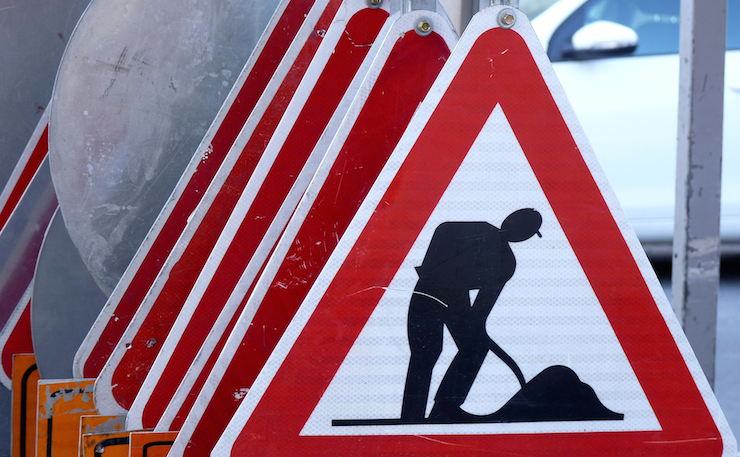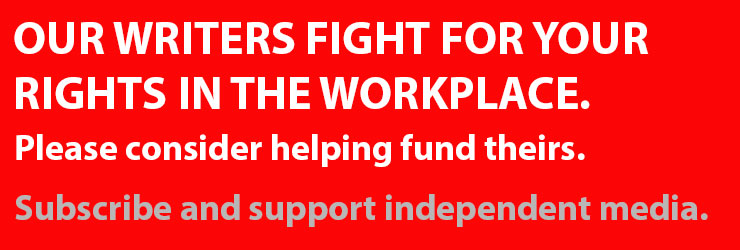Media representations concerning the unemployed in Australia are consistently negative, degrading and dehumanising, writes Peter Thrupp.
The Australian public are very aware of the “dole bludger” archetype (although most have never met someone who fits that mould) and the nefarious ways in which they rip off the good, honest, hard-working taxpayer for their lavish lifestyles.
This narrative, although mostly myth, is used to manufacture the consent of the public into voting for ineffective, punitive welfare policies that harm the most vulnerable sections of society.
A Current Affair recently ran a poll asking if women who are receiving Centrelink payments should be forced onto contraception. Former Labor MP Gary Johns appeared on the program in December of last year, arguing that it would be a way to eliminate intergenerational welfare.
This is not the first time Gary Johns has said something controversial about welfare and it’s recipients. Johns has also accused Aboriginal mothers of purposefully getting pregnant in order to claim welfare payments.
In one of his more sensitive moments, he referred to these women as “cash cows”.
Johns, a staple of the right-wing think tank the Institute Of Public Affairs, doesn’t put much emphasis on the bodily autonomy of women if they are in a lower income bracket.
A Current Affair pushes a familiar narrative about the unemployed on a regular basis, even choosing to distort the truth if it suits their purposes.
A piece featured on the Council of Single Mothers and their Children (CSMC) website tells the story of Alex Girle who was featured on A Current Affair.
Alex receives Centrelink payments while she looks after her six children, one of whom is severely disabled with cerebral palsy. At the time, she was looking for a way to break free of her family’s poverty and decided to turn to crowd-funding to help finance her own business.
The program aired, portraying her as a “welfare queen, laughing all the way to Centrelink and living the high life off taxpayer’s dollars.”
A Current Affair deliberately “chose to edit their program in a way that clearly painted Girle’s family and other single mothers as welfare bludgers sponging off hard working Australians.”
In just one of numerous examples of omission by the Current Affair team they, “edited footage of a family experiencing intergenerational poverty into the segment, but failed to tell viewers Alex’s eldest daughter is now living and working overseas and was recently promoted in her work.”
The program also highlighted the use of iPads by Girle’s family, as if one piece of modern technology somehow negates any financial stress they are under. However, due to purposeful framing by the cameraman, the program didn’t reveal that the iPad’s screen had been significantly cracked. They also omitted that the iPad helps with the communication and learning of her severely disabled son.
This type of narrative and rhetoric is surely familiar to many Australians. Headlines such as, “Jobactive: News scheme tells dole bludgers to get off the couch and get a job” from the Daily Telegraph are a regular occurrence in our modern culture. However, what is excluded from these stories is the academic research that shows that Work for the Dole programs like Jobactive actually hinder job seekers, not help them.
As Jeff Borland, professor of economics at Melbourne University explains, “Participants were less likely to move off payments. Six months after commencing in the Work for the Dole program, 71.4 per cent of participants were still in receipt of unemployment payments, compared to only 59.1 per cent of non-participants.” Even more favourable research on the subject only shows a 2 per cent increase in likelihood of participants seeking employment, indicating it has little impact, if any at all.
Perhaps the government’s support for such a program is because of the free labour it creates for the business sector, even if it comes at the expense of already vulnerable, unemployed people.
What’s also consistently ignored in media reports surrounding the unemployed is the impact that poverty has on people’s ability to gain long-term employment. According to the Australian Council Of Social Services, “61.2 per cent of people who are unemployed were living below the poverty line,” which includes, “55.1 per cent of those on Newstart Allowance, 50.6 per cent on Youth Allowance; 47.2 per cent on Parenting Payment, 48 per cent on Disability Support Pension, 24.8 per cent on Carer Payment, and 15.7 per cent of those on Age Pension.”
As Judith Ireland of The Age reports, “In a recent survey of more than 110 Newstart and Youth Allowance recipients, it found 24 per cent had gone without meals in the last year because of their financial situation.”
Ireland quotes the Australian Council of Business: “The rate of Newstart no longer meets a reasonable standard of adequacy… There is concern that the low rate of Newstart itself now presents a barrier to employment and risks entrenching poverty.” Perhaps if Gary Johns was truly concerned about fighting intergenerational welfare dependency, he would be better off focusing his time and effort on raising Newstart payments to be above the poverty line.
If one cannot afford to pay for basic necessities like food, rent, clothes, transport and internet/phone connections, the likelihood of getting a obtaining a job becomes increasingly harder. And according to Organisation of Economic and Co-operative Development (OECD) data, Australia is currently the second worst country recorded by the OECD for poverty rates for the unemployed.
Income management schemes in the guise of “Healthy Welfare Cards” are currently being trialled in low-income areas across the country. Most recently, a trial for the South Australian trial of Ceduna will go ahead, despite opposition from the Greens.
These cards would greatly limit the economic autonomy of welfare recipients who are already below the poverty line. As the ABC explains, “adult welfare recipients in the town will have 80 per cent of their payment quarantined so it cannot be spent on alcohol or gambling. The restrictions on cash are also designed to prevent government payments being used to buy illegal drugs.”
However, there is simply no evidence to support the idea that income management has been effective in combatting drug or alcohol abuse in welfare dependant communities. As Eva Cox of the University of Technology Sydney states, “There is no evidence in the evaluations of the Northern Territory income management programs that controlling access to cash has reduced alcohol abuse, even in communities covered by the program for up to seven years.”
Put simply, this program seeks to infantilize grown adults, the overwhelming majority of whom have not been proven to be drug or alcohol addicts. It strips them of whatever shred of financial independence they have left and seeks to put them into an even more degrading position in society.
Legislation that would expand the power of privately owned job agencies to fine job seekers passed Parliament with bi-partisan support from both the LNP and ALP. It is expected to pass the Senate within the next few weeks. As Owen Bennett of the Australian Unemployed Workers Union explains, “If they are found to have missed an appointment without a “reasonable excuse”, Newstart recipients may be fined one-tenth of their Newstart entitlement, or roughly $50. Considering the already inadequate rate of Newstart benefit, which is $280 per fortnight below the poverty line, this punitive measure will push the unemployed further into poverty.”
The rhetoric of our media is echoed in the policies that our government pursues, often with bipartisan support. Despite facing innumerable economic challenges and the vast majority simply being victims of an unchecked economic system, our mainstream narratives are constructed to vilify and dehumanise the unemployed. They use this to push policy that has as little efficacy as it has compassion.
However, the Australian Unemployed Workers Union (AUWU) has been actively organising against both the policies and the narratives of Australia when it comes to the unemployed.
Along with numerous protests in order to fight the fines that would be dispensed by private employment agencies and cashless welfare card, the AUWU is taking action.
As reported by the Courier Mail, the AUWU is, “planning a class action against the Federal Government, claiming new laws docking dole payments are an affront to natural justice.”
Perhaps a movement by unemployed people, for unemployed people may be possible through organisations such as the AUWU and fight back against the dehumanising and demoralising narratives currently surrounding the unemployed in Australia.
Donate To New Matilda
New Matilda is a small, independent media outlet. We survive through reader contributions, and never losing a lawsuit. If you got something from this article, giving something back helps us to continue speaking truth to power. Every little bit counts.





